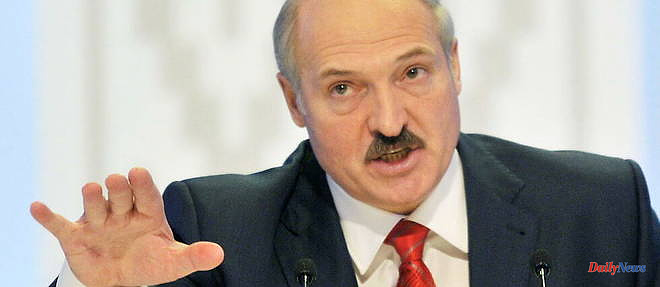Announced on March 25, the transfer of Russian tactical nuclear weapons to Belarus began on Thursday, May 25, according to Alexander Lukashenko, president for nearly thirty years of this former Soviet republic, the only ally of the Kremlin on the European continent. A special warehouse for these limited-range, yet dangerous weapons is also being built in the country, and is expected to be completed by July. Bordering Russia, Ukraine, Poland and Lithuania, Belarus thus appears, once again, trapped in its relationship with Moscow, with which it has concluded an extensive integration agreement.
Because if the Belarusian president may present the return of nuclear weapons to his land as a guarantee of security against the Americans, who have placed theirs in Germany, Belgium, the Netherlands, Turkey and Italy, "it will not be the Belarusians who will control these weapons, but the Russians, to whom the country lends its territory, ”explains researcher at Bordeaux-Montaigne University Olga Gille-Belova.
The transfer of nuclear weapons to Belarusian territory appears more symbolic than strategic, according to the researcher, for whom Russia does not really need to place these weapons in Belarus to hit its targets. "It's mostly rhetoric and a way to retaliate against threats of delivery of depleted uranium weapons to kyiv," she explains. This transfer therefore makes more sense in the context of the escalation between Russia and NATO than in response to truly Belarusian issues. »
Historically reluctant to nuclear power – the explosion of the Chernobyl power plant, located 400 km from Minsk, contaminated 23% of the country – the Belarusian population would be opposed to the arrival of nuclear weapons, according to a poll carried out by the circle of British reflections Chatham House. After the fall of the USSR, the country had returned its weapons to Russia and signed the non-proliferation agreements concluded in the 1990s, in addition to enshrining its nuclear neutrality in its Constitution.
But since the start of the war in Ukraine, the discourse has changed and the authorities' room for maneuver appears particularly tenuous, if not non-existent. The Constitution was amended just days after Russian troops entered Ukraine to remove the article making the country a "nuclear-free zone".
If the country remains officially non-belligerent in the conflict, it serves, in fact, as a rear base for Russia, to which it lent its territory to launch the invasion of Ukraine in February 2022. Thousands of soldiers In addition, Russian military equipment and training camps are still deployed there, and the Belarusian army participated in defensive maneuvers with Russia, organized on its territory in January.
The arrival of nuclear warheads marks a further step in this process of vassalization, with which President Lukashenko had been tackling for years, alternating rapprochement with Moscow and reaching out to Westerners. But the context has changed: faced with massive protests in 2020 after the rigged elections, the one who is considered by Washington as the "last autocrat in Europe" could count on the support of Russia, and he must now pay the price.
Already extremely linked to Russia for its supply of oil and gas, Belarus has thus seen its economic dependence on Moscow reinforced by the sanctions taken against the bloody repression of the 2020 protest movement. The country additionally depends on Russia for the export of its manufactured products, such as its tractors, unsuited to the Western market. A new loan was finally concluded last December by Belarus from Russia.
If this has become particularly noticeable since the start of the conflict, “Belarus has, in fact, no longer had strategic sovereignty since 2020, underlines Olga Gille-Belova. The war in Ukraine has completely exacerbated this process, but concretely, Alexander Lukashenko had already given up his room for maneuver for several years in exchange for his stay in power, when Vladimir Putin supported him in the face of protests. »
The country thus has 1,516 political prisoners for 9 million inhabitants, according to the NGO Viasna, and the situation is further accentuated by its isolation on the international scene, which completely cuts off the opposition in exile from the population. From Lithuania, opponent Svetlana Tikhanovskaya, sentenced in absentia to 15 years in prison in March, nevertheless protested against the transfer of nuclear weapons in a long text on Twitter.
“Today the Belarusian regime signed an agreement with Russia on the deployment of nuclear weapons. Not only would this endanger the lives of Belarusians, but it would create a new threat against Ukraine and all of Europe, she blasted. This will make Belarusians hostage to Russian imperial ambitions,” she wrote.
Today, the












